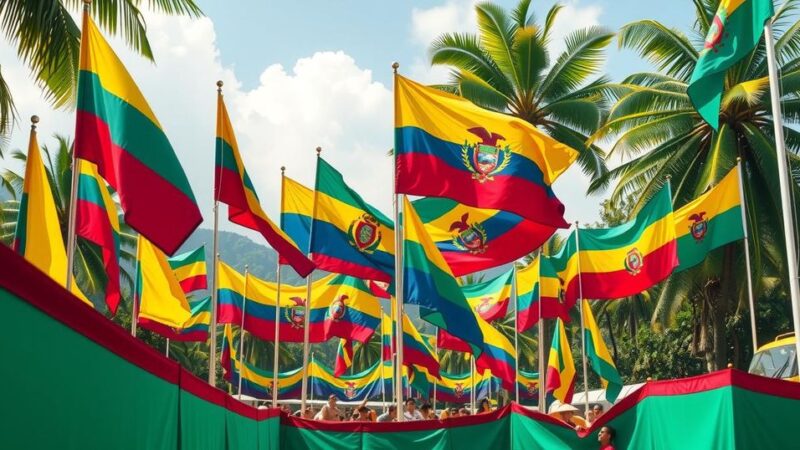In Brazil’s municipal elections, Jair Bolsonaro’s right-wing party secured key victories, particularly in Sao Paulo, where outgoing mayor Ricardo Nunes received 29.4 percent, narrowly defeating leftist candidate Guilherme Boulos at 29 percent. A runoff is scheduled for October 27. Despite successes, Bolsonaro’s party faced challenges, especially in Rio de Janeiro, where centrist Eduardo Paes won his fourth term with 60.4 percent. The elections occurred amidst significant security concerns and issues of misinformation.
In Brazil’s recent municipal elections, former President Jair Bolsonaro’s right-wing party achieved notable success, particularly in Sao Paulo, the nation’s economic heart. Outgoing mayor and Bolsonaro ally, Ricardo Nunes, received 29.4 percent of the votes, narrowly defeating leftist candidate Guilherme Boulos, who garnered 29 percent. An unexpected third contender, populist Pablo Marcal, finished with 28.1 percent and was subsequently eliminated from contention. A runoff election is slated for October 27, as confirmed by election officials. Bolsonaro’s party registered victories in two of the 26 state capitals and advanced to the second round in an additional nine municipalities. Despite these gains, not all elections favored the Bolsonaro camp; notably, centrist Eduardo Paes won his fourth term as mayor of Rio de Janeiro with a commanding 60.4 percent of the vote, besting Bolsonaro’s former intelligence chief, Alexandre Ramagem, who received 30.8 percent of the ballots cast. These election results are scrutinized as indicators of the political landscape and the balance of power between the left, represented by President Luis Inacio Lula da Silva, and the right, embodied by Bolsonaro. Over 150 million Brazilians were eligible to participate in the elections amidst pressing issues such as severe wildfires and droughts, challenges that largely went unaddressed during campaign discussions. The campaign atmosphere was tense, marked by violence, as three candidates were murdered in recent weeks. Consequently, authorities deployed over 23,000 soldiers across 5,500 municipalities to ensure security. Misinformation permeated the electoral process, with social media platform X suspended since August 31 due to accusations of spreading false information. Pablo Marcal, an ultra-conservative figure, gained traction among Bolsonaro’s supporters through his controversial rhetoric. In a particularly charged debate, Marcal faced a physical attack from a rival. Following his vote, Boulos characterized this election cycle as “not a normal election,” citing the presence of “lies” and “hatred” in the discourse. Political analyst Mayra Goulart noted that Lula was personally invested in Boulos’s success, suggesting his election as mayor of Brazil’s largest city would represent a significant triumph for the sitting president.
The recent municipal elections in Brazil reflect a broader contest between the left and right factions within the nation’s political arena, particularly the ongoing rivalry between President Luis Inacio Lula da Silva and former President Jair Bolsonaro. The results from this election could have substantial implications for local governance, highlighting the public’s response to each party’s policies amid pressing socio-environmental challenges. As candidates campaign under heightened security concerns following violent incidents, the integrity of the electoral process remains a critical topic, compounded by the pervasive issue of misinformation in the media. This election not only serves as a battleground for immediate political aspirations but also acts as a barometer of public sentiment towards each political ideology.
The municipal elections in Brazil signal a notable moment for Bolsonaro’s party, with significant victories in Sao Paulo and statewide triumphs, even as challenges persist in other major cities. The electoral landscape underscores the ongoing ideological conflict within Brazil, particularly with the roles that misinformation and violence have played. The forthcoming second round of voting will be pivotal in determining the future political landscape, as both major parties seek to consolidate their influence in key urban centers.
Original Source: www.france24.com






